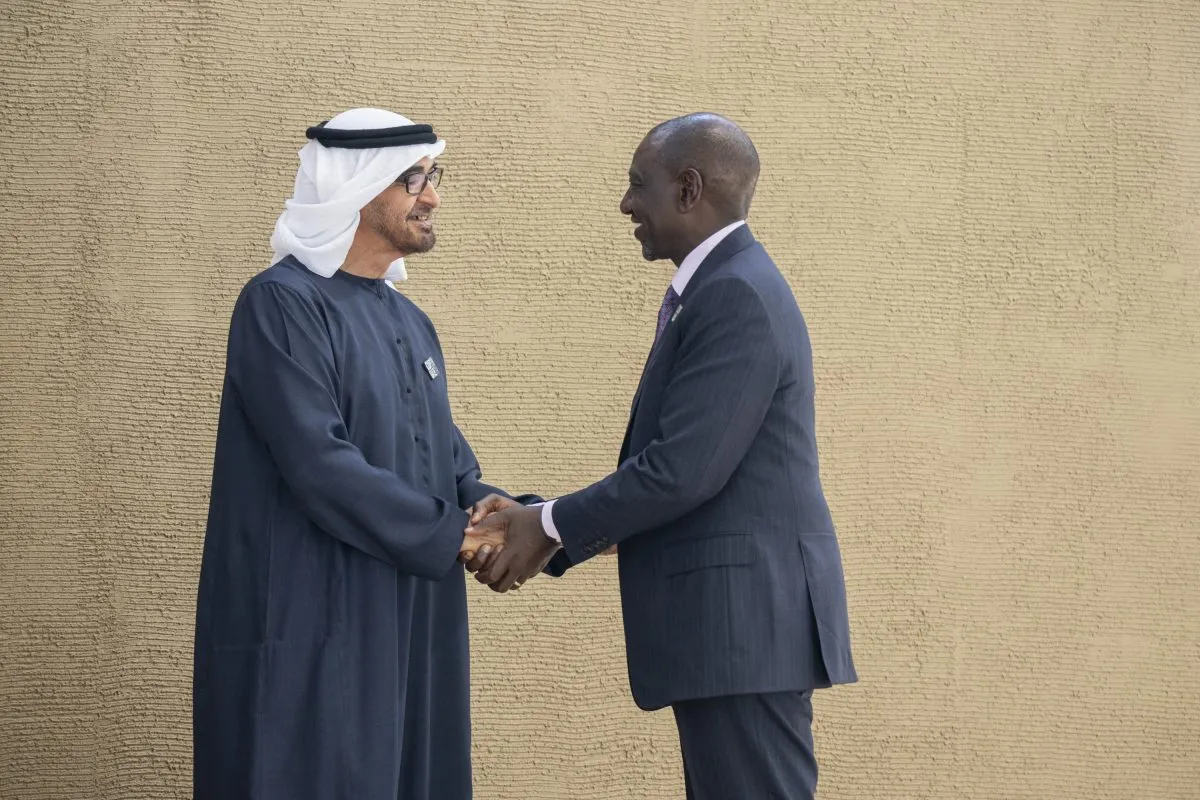The United Arab Emirates is emerging as one of Africa’s most consequential investment partners.
COP28 in Dubai in December 2023 was key in outlining a roadmap for the years ahead. There, concessions were given to Emirati companies to develop green initiatives in Angola, Uganda, the Republic of Congo, Kenya and Mozambique including solar, hydraulic and geothermal energy projects.
Between 2019 and 2023, Emirati companies announced $110bn of projects in Africa according to data provider FT Locations – $72bn of them renewable energy projects.
Elsewhere, logistics giant and UAE-based DP World is making large investments in port facilities and operations on the continent, and UAE’s International Holding Company (IHC) – which has a market cap of AED892.8bn ($243bn) is pursuing projects in health, fintech and mining.
The Africa Debate event, held in October 2024 in Dubai, offered a chance for the United Arab Emirates as a whole to boast of its willingness to invest in key sectors across the continent.
African-UAE cooperation has been steadily rising since the early 2000s. Artur Frantz, research fellow at the South American Institute for Policy and Strategy, says interest spiked when Dubai sought to diversify its oil-based economy by investing in hydrocarbons revenues abroad, including investments in African infrastructure, tourism, agribusiness and mining. The oil sector’s contribution to the UAE’s GDP went from 57% in 1975 to 17% in 2020.
Infrastructure is one of the major areas of mutual interest underpinning the expanded relationship.
The UAE, which grew from a series of impoverished minor desert sheikhdoms into a major Middle East hub within decades, offers substantial experience in building major urban infrastructure projects, something Africa can benefit from as it seeks to move away from its own natural resources dependency and close its enormous infrastructure gap. In late 2023, the African Development Bank estimated that between $130 and $170bn was needed for infrastructure development every year to be able to solve inequalities. At the same time, the Global Competitiveness Report, issued at Davos’ World Economic Forum in 2023, ranked the UAE as fourth globally in infrastructure quality.
As the continent battles the consequences of climate change and looks to extend electricity to the 600m Africans who are reported to lack access, renewable energy is also emerging as an area of intense cooperation. The International Renewable Energy Agency says that the Middle East is the fastest-growing region outside China in terms of adding capacity to the renewable energies market.
Source: Africanbusiness
